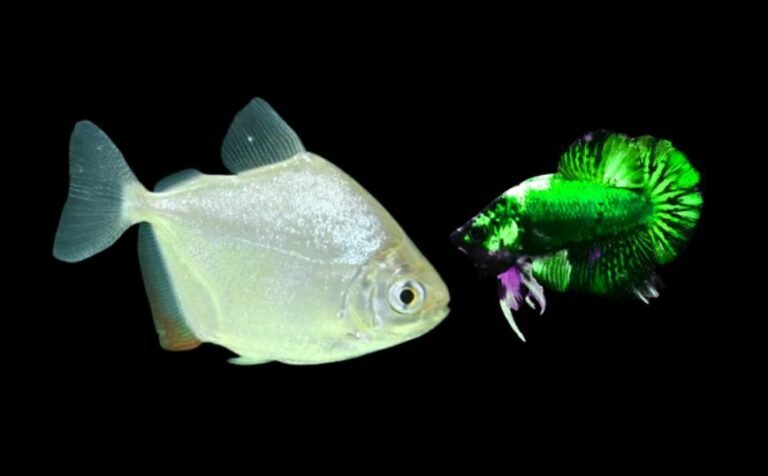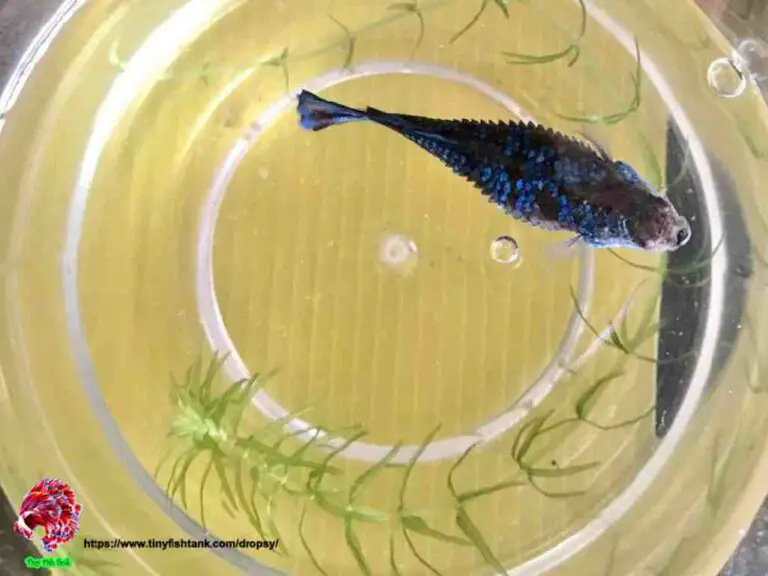How to tell if Betta fish is stressed?
Stress can harm the health and well-being of all living organisms, including fish. Fish cannot actively reduce stress on their own, unlike humans, who can make changes such as changing jobs or partners or adjusting their environment through actions such as turning on an air conditioner.
Both freshwater and saltwater fish are confined to the small, artificial environments of Betta fish tanks and entirely depend on their caretakers to create suitable living conditions and address any stressors they may be experiencing.
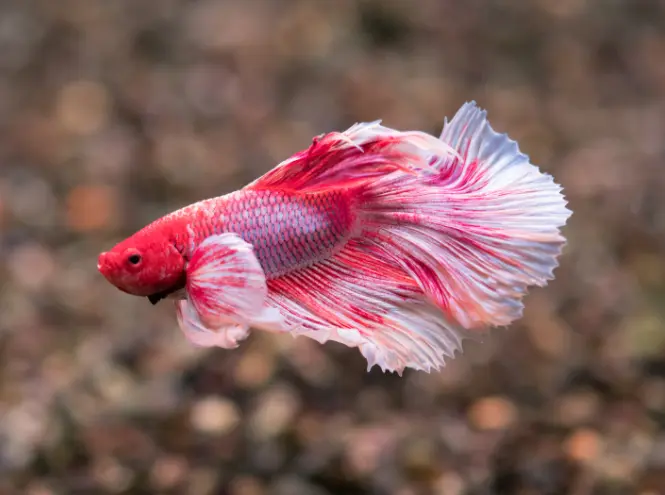
Fish stress can manifest in various ways, including changes in behavior, physiology, and even physiology. Prolonged or chronic stress can lead to multiple health problems, such as reduced immunity and increased susceptibility to disease.
Fish owners must provide a suitable environment and ensure their needs are met to minimize stress and maintain their overall well-being.
Table of Contents
- What are the Causes of Stress in Betta Fish?
- A list of the sign of Betta fish stress
- How to de-stress(relax) betta fish?
What are the Causes of Stress in Betta Fish?
Betta fish are generally known for their ability to adapt to varying environmental conditions and tolerate a certain stress level.
However, certain factors can cause excessive stress in fish and negatively impact their health and well-being.
Some of the most common stressors that betta fish face include:
- Rapid changes in water temperature and pH levels
- Crowding and overstocking in the aquarium
- Poor water quality, including high levels of ammonia, nitrite, and nitrate
- Lack of hiding places and appropriate shelters
- Inadequate lighting conditions
- Unsuitable tank mates
- Lack of proper nutrition and diet
- Lack of appropriate socialization
- Exposure to disease and parasites
- Handling and transportation
Remember, it’s important to note that fish are not just affected by a single stressor but also by a combination of multiple stressors.
Prolonged or chronic stressors can lead to various health problems, such as reduced immunity, increased susceptibility to disease, and even death.
Therefore, Betta fish owners must provide a suitable environment and meet the fish’s needs to minimize stress and maintain their overall well-being.
01. Sudden water quality changes in the environment
As you know, Poor water quality is one of the most significant stressors for Betta fish in captivity. A build-up of toxins and waste products, such as ammonia and nitrite, can occur in an aquarium when water changes are not done frequently enough.
This can lead to a decline in water quality, which can be detrimental to the health and well-being of the fish. Fish owners must maintain a regular schedule of water changes to remove waste products and keep the water clean and healthy for the fish.
Another common stressor for Betta fish is sudden changes in temperature or pH levels. A sudden temperature change can occur due to a malfunctioning heater, which can be highly stressful for fish.
Similarly, adding new materials to the aquarium, such as rocks or plants, can cause a sudden swing in pH or hardness levels, which can also be stressful for fish. Fish owners must monitor and maintain consistent water conditions to minimize stress on the fish.
Additionally, it is essential to note that a sudden significant water change after prolonged neglect can also cause immense stress to the fish.
Your betta fish can adapt to gradual changes, but sudden changes in their environment can be highly stressful. Therefore, performing frequent small water changes rather than infrequent significant water changes is recommended.
Read More About :- Can a betta fish recover from ammonia poisoning?
02. Low water pH level and wrong temperature
Like all living organisms, Betta fish have specific environmental requirements for optimal health and well-being. While some fish can tolerate a range of water conditions, others have particular needs that must be met to minimize stress and maintain their health.
Commercially bred Betta fish, such as those found in pet stores, may tolerate various water conditions, including neutral pH and hardness levels and temperatures around 74 degrees Fahrenheit.
However, certain fish species, such as bettas, require hard, alkaline water for optimal health and will not thrive in soft, acidic water.
Betta fish require warm water, with temperatures in the low 80s, while goldfish need colder temperatures and may become stressed if kept at temperatures above 75 degrees.
You must research the specific needs of the species they are keeping and provide appropriate water conditions to minimize stress and maintain their health. Failure to do so can lead to chronic stress, harming the fish’s overall health and ultimately leading to death.
03. Betta fish bullying from other fish breeds
Bullying from tank mates is a significant stressor for Betta fish in captivity. In the wild, fish can flee from aggressive or dominant individuals, but in an aquarium’s confined space, they may be unable to escape.
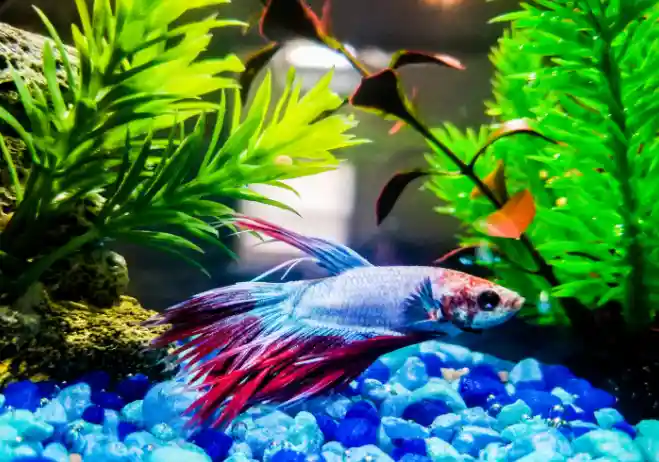
This can lead to chronic stress and bullying, which can negatively impact the health and well-being of the Betta fish.
In some cases, a single Betta fish may become a bully to all the other fish in the aquarium, making it necessary to remove the bully fish to alleviate the stress on the other fish. Similarly, when a group of fish, particularly cichlids, are raised together and begin to pair off for spawning, the non-spawning fish may experience significant stress.
This can result in the pinned up in the corner of the aquarium and may require the pair to be moved to another aquarium or remove all the fish except the pair.
Remember, it’s important to note that stress from aggression and bullying can lead to various health problems, including reduced immunity, increased susceptibility to disease, and even death.
Therefore, it is crucial for Betta fish owners to monitor the behavior of their fish and take appropriate action to alleviate stress and maintain the overall well-being of the fish.
Why is Betta Fish Swimming Erratically? [7 Reasons & Answers]
tiny fish tank
04. Inflection of parasites or any other Diseases
As you know, Diseases and parasites can be significant stressors for Betta fish in captivity. However, it is essential to note that stress often precedes and exacerbates the onset of these conditions.
Many diseases and parasites are present in aquariums. Still, healthy and unstressed fish can typically fight off these conditions through their immune systems and the protection provided by their skin, scales, and slime coat.
However, when fish are stressed from environmental conditions, poor water quality, bullying, or other stressors, their immune system can become compromised, making them more susceptible to disease and parasitic infections.
Stress disrupts the balance of the fish’s immune system, making them more susceptible to disease and parasites. Stress can also cause physical changes in the Betta fish’s body, such as skin damage, that can help the parasites to establish a foothold.
Always keep in your mind; it is important to note that stress-induced disease and parasitic invasion are not one-way streets, as diseases and parasites can also cause stress in Betta fish.
The Betta fish suffering from diseases and parasites may show symptoms such as lethargy, loss of appetite, abnormal swimming behavior, and skin lesions, which also can be stressful to the fish.
Therefore, you must always maintain good water quality, provide appropriate living conditions, and monitor the health of your fish to minimize stress and prevent the onset of disease and parasitic infections.
| Parasite | Description | Symptoms | Treatment |
| Ich (Ichthyophthirius multifiliis) | A common protozoan parasite that attaches itself to the fish’s body and fins. | White spots on the skin, fins, and gills, increased scratching and flashing, decreased appetite, and increased respiratory rate. | Ich can be treated with a range of products such as Copper sulfate, formalin, and malachite green. However, it is important to note that these products can also be toxic to fish if not used properly. It’s recommended to follow the manufacturer’s instructions. |
| Velvet (Oodinium spp.) | A dinoflagellate parasite that attaches itself to the fish’s skin, fins, and gills. | Golden-brown dust-like appearance on the skin and fins, decreased appetite, and increased respiratory rate. | Velvet can be treated with products such as copper sulfate and formalin. However, it is important to note that these products can also be toxic to fish if not used properly. It’s recommended to follow the manufacturer’s instructions. |
| Anchor worm (Lernaea spp.) | A parasitic crustacean that attaches itself to the fish’s body and fins. | Small white or red worms protruding from the skin, increased scratching, and flashing. | Anchor worms can be removed manually by gently pulling them out with tweezers, followed by treatment with products such as formalin or potassium permanganate. |
| Flukes (Gyrodactylus spp.) | A flatworm parasite that attaches itself to the fish’s skin and fins. | Increased scratching, flashing, and small white spots on the skin and fins. | Flukes can be treated with products such as praziquantel or metronidazole. However, it is important to note that these products can also be toxic to fish if not used properly. It’s recommended to follow the manufacturer’s instructions. |
| Costia (Ichthyobodo spp.) | A parasitic protozoan that attaches itself to the fish’s skin and fins. | Increased scratching, flashing, and small white spots on the skin and fins. | Costia can be treated with products such as formalin or metronidazole. However, it is important to note that these products can also be toxic to fish if not used properly. It’s recommended to follow the manufacturer’s instructions. |
A list of the sign of Betta fish stress
1. Loss of appetite
2. Decreased activity level
3. Abnormal swimming behavior, such as darting or spinning
4. Rapid breathing or panting
5. Clamped fins (tightly held fins close to the body)
6. Discoloration or darkening of the skin
7. Loss of color vibrancy
8. Reddening or inflammation of the fins, gills, or eyes
9. Hiding or spending extended periods at the bottom of the tank
10. Increased susceptibility to disease or parasitic infections
11. Increased scratching or flashing (rubbing against surfaces)
12. Loss of scales or erosion of the slime coat
13. Bulging eyes
14. Abnormal growth or discoloration of the fins or tail
15. Emaciation or weight loss
Keep in mind, and it’s important to note, that not all of these signs may be present in every case, and stress can manifest differently in different fish. Pay attention to the Betta fish’s overall behavior and appearance and note any changes.
How to de-stress(relax) betta fish?
When fish show signs of stress, it is essential to identify and eliminate the cause immediately. Fish in captivity depend entirely on their caretakers to provide suitable living conditions and address any stressors they may be experiencing.
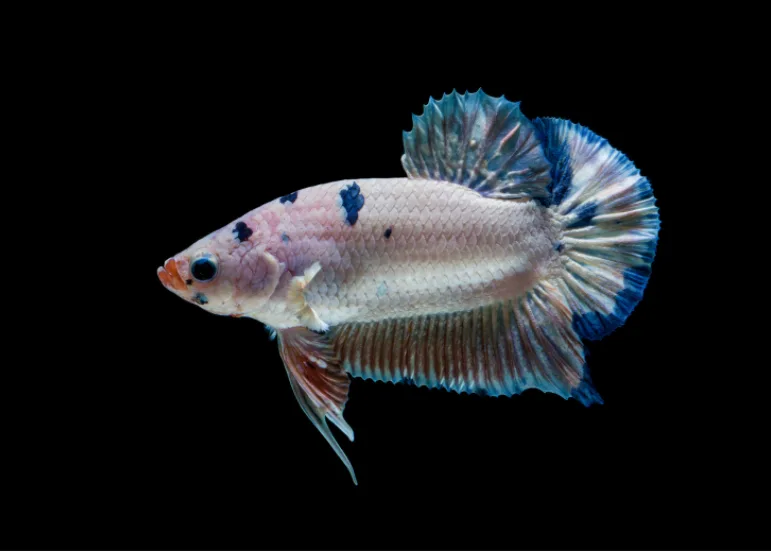
01. Check the water condition
The first step in addressing stressed Betta fish is to test the water conditions. This includes checking the pH, ammonia, nitrite, and nitrate levels. If any of these parameters are out of range, it is necessary to take corrective action to return them to appropriate levels.
In addition to testing water conditions, it is also essential to check the equipment and other environmental factors that may be causing stress.
This includes checking the temperature of the water and ensuring that the heater is working correctly, studying that the filter is moving water as it should and that the filter media is not clogged or in need of replacement.
As you know, it’s essential to ensure that nothing has accidentally been spilled into the aquarium and that the water is clear, not cloudy or discolored.
02. Betta fish tank size and number of fish living in the tank
Additionally, it’s essential to check the fish’s living conditions, such as the tank size and the number of fish in the tank, as overstocking or overcrowding can also be a significant stressor for fish.
Proper nutrition, diet, and socialization are crucial to fish’s health and well-being. By identifying and addressing the cause of stress, fish owners can help minimize stress and maintain their fish’s overall health and well-being.
03. Remove other aggressive fish
Bullying from tank mates can be a significant stressor for Betta fish, and it is essential to take action to address this behavior.
If a single fish is found to be bullying other fish, the best course of action is to remove the bully fish from the tank. This can help alleviate the other fish’s stress and prevent further bullying behavior.
Cichlid fish, such as convicts, kribs, and angelfish, are known to be territorial and may become aggressive toward other fish in the tank when trying to establish a breeding territory.
Removing either the newly formed pair or the other fish from the tank may be necessary in these cases. This can help alleviate the non-spawning fish’s stress and prevent further aggression.

It’s important to note that removing your aggressive fish from the tank may not be a permanent solution.
You must know a new fish may also develop aggressive behavior. Therefore, it is crucial to consider fish compatibility before adding them to the tank and to provide enough space and hiding places to reduce competition and aggression.
It is also important to note that rehoming the aggressive fish should be done responsibly, such as by finding a new suitable home or contacting a local fish store.
Acute stress in fish is characterized by severe symptoms such as gasping at the surface, lying on the bottom of the tank and not moving, or darting around the aquarium.
Keep in your mind; these symptoms may indicate that the water has been contaminated somehow, and immediate action is necessary to address the issue. Common causes of water contamination include cleaning products, pesticides, or other chemicals accidentally released into the aquarium.
Read More About :- https://www.tinyfishtank.com/betta-fish-keep-jumping-out-of-the-tank/
04. Improve water conditions and minimize further stress
When your fish show signs of acute stress, it is essential to take immediate action to improve water conditions and minimize further stress. One option is to perform a 50-percent water change, using conditioned water suitable for betta fish.
Suppose another aquarium with the proper water conditions is available. The stressed betta fish can also be moved to that aquarium as long as the inhabitants of that aquarium are not harmful to the new fish.
It is essential to act when your betta fish are experiencing acute stress, as delaying action can lead to the death of the fish.
It’s also important to note that when the cause of the stress is unknown, it’s essential to carefully monitor the water parameters, such as pH, ammonia, nitrite, and nitrate levels, and test for any signs of contamination.



